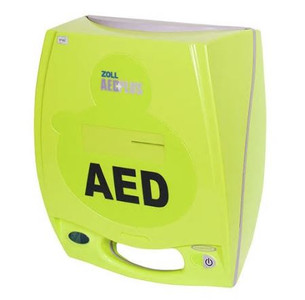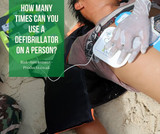Laws Regarding Public Access to Defibrillators
According to the British Heart Foundation, around 60,000 people in the UK suffer a sudden cardiac arrest each year whilst not being within a hospital environment. The foundation enforces how speed is critical in responding to such an event, and to give the casualty the best chance of survival emergency resuscitation should begin within four minutes. In order to provide quick and, accurate treatment defibrillators are a key piece of equipment.
Over the past few years, there has been a focus on building awareness around Automated External Defibrillators (AED) and increasing public access to them. This is thanks to them being a portable, life-saving device that can be utilised by any member of the public no matter if they have never received any previous training. By being such a successful aid in cardiac arrest, it is now suggesting that defibrillators are present in a number of public areas.
Public Access Defibrillators
In order to make AEDs available in public dense areas, Public Access Defibrillators can be utilised. You can find these in busy areas including airports, shopping centres, train stations and gyms. To make AEDs more available in these areas the Department of Health, the British Heart Foundation and other charities have been helping to provide them.
To allow AEDs to be safely stored in a public place, CPADs are utilised. These are cases that can be attached to a wall or building and can be accessed 24/7, whilst keeping the AED secure. To access the CPAD an access code is needed, which can be obtained by calling 999 and following their instructions.
Providing easy to follow vocal and visual instructions allows AED's to be utilised by any member of the public without having training. Once turned on the device will talk the user through every step they need to take. When attached to the victim that machine will then monitor their heartbeat and conclude if they require a shock or not, making AEDs incredible safe to use and perfect for public use.
Defibrillators and the Law
Currently, there are no specific legal requirements in regard to employers having to provide defibrillators in the workplace. However, regulations require employers to ensure adequate and appropriate first aid equipment and facilities are available. It is also strongly recommended that when making their assessment of first aid needs, employers take the public and others into account.
Guidance from the Health and Safety Executive also recommends the installation of an automated external defibrillator when; chance of cardiac arrest in the vicinity has a reasonable probability of occurring once every two years, an ambulance wouldn’t be able to reach the area within an appropriate time and that an onsite AED would be able to reach a collapsed victim in 5 minutes.
If you do choose to provide an AED, then it is recommended that members of staff should be fully trained in its use as well as ensuring that the AED and any other medical equipment is properly maintained.
Our Range of Defibrillators
Here at Risk Assessment Products, we stock a large collection of AEDs including leading brands such as Zoll, IPAD, Lifepak and more, you can put your trust in us and our products. We also provide training manikins that can help first aid trainees how to confidently and correctly utilise a defibrillator. You can find all of these lifesaving products on our website.
Recent Posts
-
How many times can you use a defibrillator on a person?
In an emergency, you can use an automated external defibrillator (AED) as many times as the device a …15th Feb 2026 -
What is CPR?
Knowing the basics of first aid and how to deliver CPR (cardiopulmonary resuscitation) can make the …17th Nov 2024 -
What is a sudden cardiac arrest (SCA)?
Sudden Cardiac Arrest (SCA) is a critical medical emergency where the heart abruptly ceases to funct …17th Nov 2024




